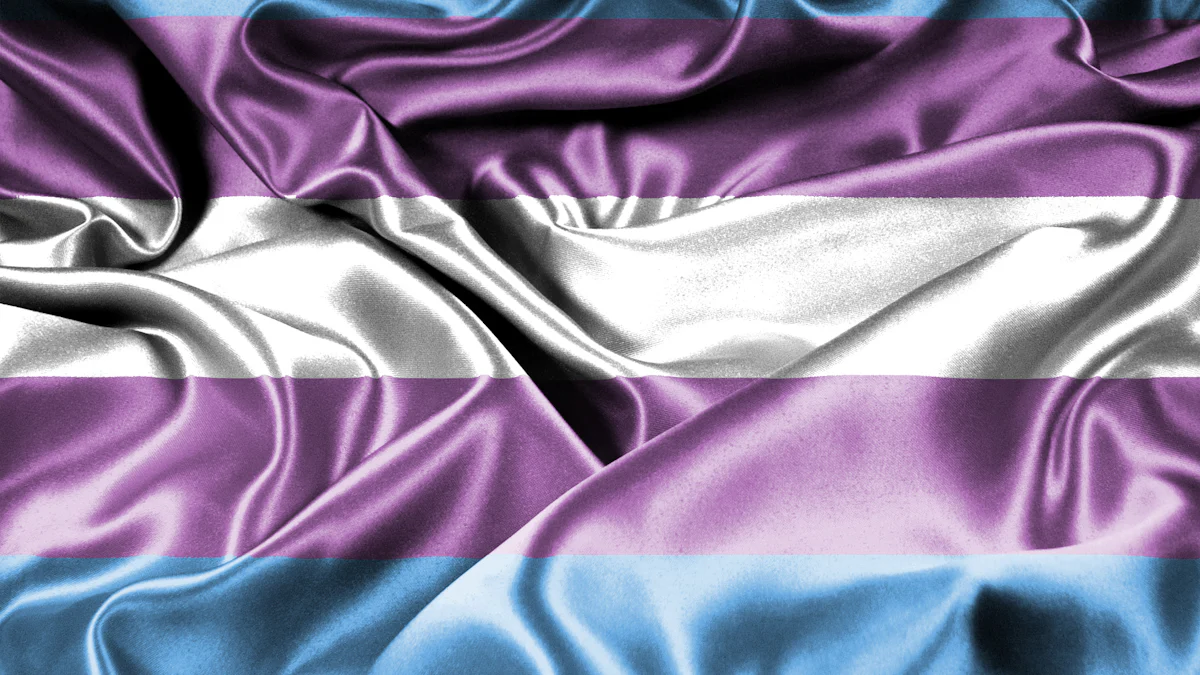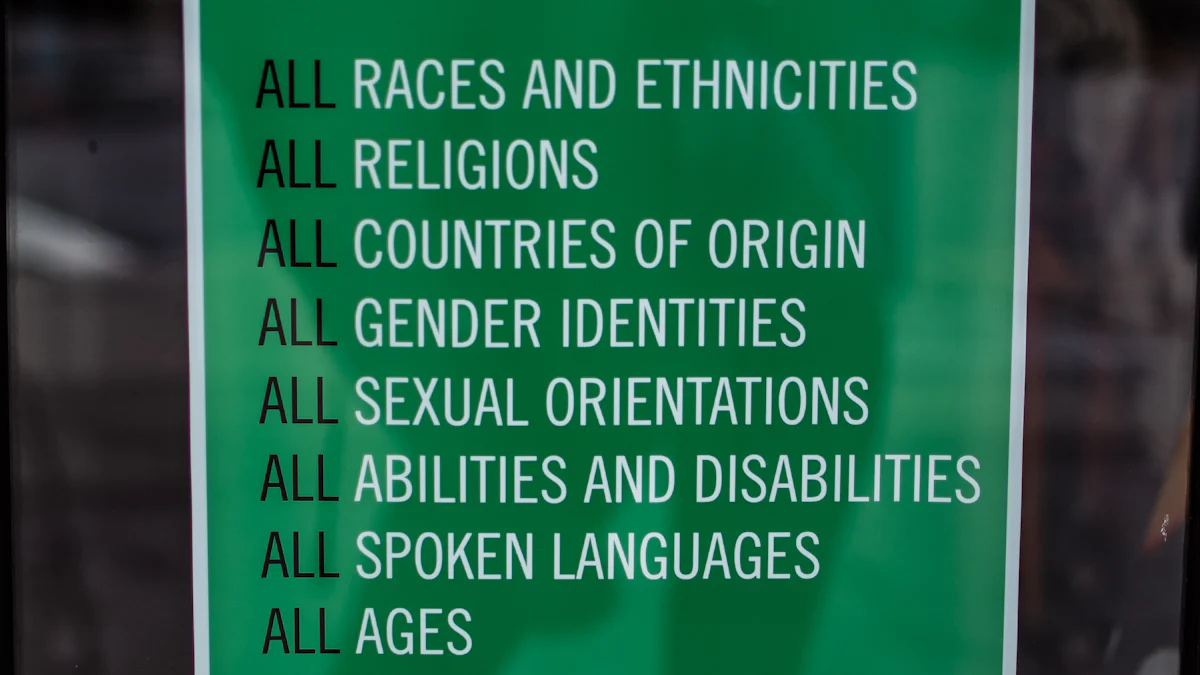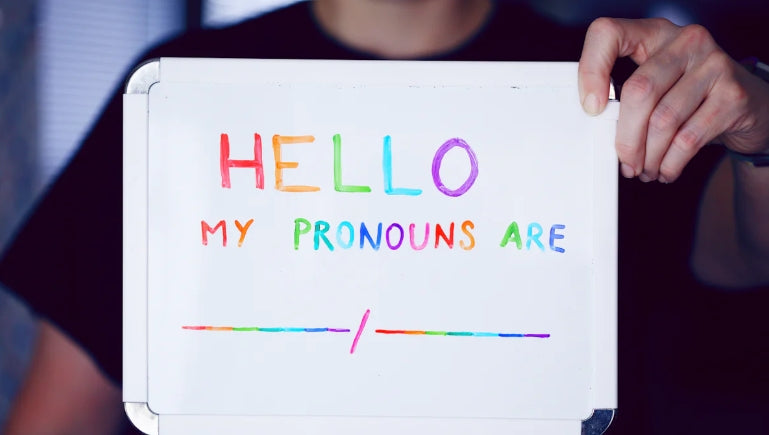When someone you know comes out as non-binary, it can feel like a new chapter in your relationship. Non-binary identities exist beyond the traditional gender binary, challenging the norms many of us grew up with. Understanding and support are crucial. You might wonder how to respond or what steps to take next. Remember, your role is to listen and learn. Embrace this opportunity to grow alongside them. By showing respect and using their chosen pronouns, you help create a safe space. This journey is about love and acceptance, not just for them, but for you too.
Understanding Non-Binary Identity

What Does Non-Binary Mean?
Understanding what it means when someone comes out as non-binary is crucial. A nonbinary person identifies outside the traditional male and female categories. This identity challenges the binary system many of us know. It’s like stepping into a new world where gender isn’t just black and white.
Definition and Explanation
A nonbinary person doesn’t fit neatly into the categories of male or female. They might feel like both, neither, or something entirely different. Dr. Deanna Adkins, a professor at Duke University, emphasizes that gender identity is the true determinant of sex from a medical perspective. This means that how a person identifies is more important than their physical characteristics.
Common Misconceptions
Many people have misconceptions about nonbinary identities. Some think it’s just a phase or a trend, like something out of a "Gossip Girl" episode. Others believe nonbinary people are confused. These ideas are not only incorrect but also harmful. Nonbinary identities have existed for centuries across various cultures. It’s essential to recognize and respect this identity as valid and real.
The Importance of Respecting Identity
Respecting a nonbinary person’s identity is vital. When someone comes out, they’re sharing a significant part of themselves with you. Your response can make a big difference in their journey.
Using Correct Pronouns
Using the correct pronouns is a simple yet powerful way to show respect. When a nonbinary person tells you their pronouns, make an effort to use them. It might take practice, but it’s worth it. If you slip up, don’t panic. Correct yourself and move on. This shows that you care and are willing to learn.
Acknowledging Their Identity
Acknowledging a nonbinary person’s identity means accepting them as they are. Avoid questioning their choices or trying to fit them into a binary box. Instead, listen to their experiences and support them. Remember, their identity is theirs alone, and it’s not up for debate.
When someone comes out as nonbinary, they’re inviting you to understand a part of their world. Embrace this opportunity with an open heart and mind. By doing so, you not only support them but also enrich your own understanding of identity and diversity.
How to Communicate Effectively
When someone you know comes out as nonbinary, effective communication becomes essential. This is your chance to show support and understanding. Let's explore how you can communicate in a way that respects their identity and fosters a positive relationship.
Listening Actively
Active listening is a powerful tool. When a nonbinary person shares their experiences, give them your full attention.
Being Open and Non-Judgmental
Approach conversations with an open mind. Avoid making assumptions or judgments about their identity. Remember, every nonbinary person's journey is unique. By being open, you create a safe space for them to express themselves freely.
Asking Respectful Questions
Curiosity is natural, but it's important to ask questions respectfully. Instead of assuming, ask them about their experiences. For example, you might say, "What does being nonbinary mean to you?" This shows that you value their perspective and are eager to learn.
Language and Pronouns
Language plays a crucial role in supporting a nonbinary person. Using the correct pronouns is a simple yet impactful way to show respect.
Importance of Using Correct Pronouns
Pronouns are more than just words; they affirm a person's identity. When someone comes out as nonbinary, they may share their pronouns with you. Make an effort to use them consistently. This small act can make a big difference in how they feel about themselves.
Nonbinary individuals often emphasize the importance of using correct pronouns. It makes them feel happy and affirmed in their gender.
How to Ask About Pronouns Respectfully
If you're unsure about someone's pronouns, it's okay to ask. Approach the topic with sensitivity. You might say, "What pronouns do you use these days?" This shows that you care about getting it right. Remember, it's better to ask than to assume.
Leo, a nonbinary individual, shared that exploring gender-neutral pronouns like 'they' helped them feel more aligned with their identity.
By communicating effectively, you not only support the nonbinary person in your life but also enrich your understanding of gender diversity. Embrace this opportunity to grow and learn together. Your willingness to listen and adapt can strengthen your relationship and create a more inclusive environment.
Educating Yourself
When someone you know comes out as nonbinary, it's essential to educate yourself about their identity. This journey of understanding can deepen your relationship and help you become a more supportive ally. Let's explore some resources and perspectives that can guide you.
Resources for Learning
To truly understand nonbinary identities, you need to dive into various resources. Books and online communities offer valuable insights.
Books and Articles
Books that make LGBTQ topics accessible can be a great starting point. Titles like "Beyond the Binary" and "Gender Outlaws" provide comprehensive insights into nonbinary experiences. These books help you grasp the nuances of gender issues and the spectrum of identities. Reading these works can broaden your perspective and make you more comfortable discussing gender diversity.
Veronika, a nonbinary author, shares their journey in "Published inThe Cross," offering a personal glimpse into the challenges and triumphs of living beyond the binary.
Online Communities and Forums
Online communities serve as a hub for learning and support. Platforms like Reddit and Tumblr host forums where nonbinary individuals share their stories and advice. Engaging with these communities allows you to learn directly from those who live these experiences. You can ask questions, read personal accounts, and gain a deeper understanding of nonbinary identities.
Understanding Gender Diversity
Understanding gender diversity involves recognizing the vast spectrum of identities and the historical context behind them.
The Spectrum of Gender Identities
Gender isn't just male or female. It's a spectrum that includes a variety of identities. Nonbinary people may identify as both, neither, or something entirely different. This diversity challenges the traditional binary system and encourages a more inclusive view of gender.
Gender therapist Roseville emphasizes the importance of acknowledging this spectrum to support nonbinary individuals effectively.
Historical and Cultural Perspectives
History shows that nonbinary identities have existed across cultures for centuries. Indigenous cultures often recognized and respected gender diversity long before Western societies. Understanding this history helps you appreciate the rich tapestry of gender identities and the resilience of nonbinary individuals.
Ramsey Addresses Gendered Award highlights how historical perspectives can inform current discussions on gender diversity.
By educating yourself, you not only support the nonbinary person in your life but also contribute to a more inclusive society. Continue reading, engaging, and learning. Your efforts can make a significant difference in creating a world where everyone feels comfortable and accepted.
Providing Support

When someone you know comes out as nonbinary, your role as a supportive ally becomes crucial. This journey requires understanding, empathy, and action. Let's explore how you can provide meaningful support.
Being an Ally
Being an ally means standing by your nonbinary friend or loved one. Your actions can make a significant difference in their experience.
Standing up against discrimination
Discrimination can occur in many forms, from subtle comments to overt actions. As an ally, you should stand up against any form of discrimination. If you hear someone making derogatory remarks about nonbinary identities, speak up. You might say, "That's not okay. Everyone deserves respect, regardless of their gender identity." Your voice can help create a more inclusive environment.
Testimonial: "When my friend came out as nonbinary, I realized the importance of speaking up. It wasn't just about supporting them; it was about creating a world where they felt safe and accepted."
Supporting their choices and needs
Support your nonbinary friend by respecting their choices and needs. If they decide to change their name or pronouns, use them consistently. Ask them how you can best support them. Maybe they need someone to accompany them to LGBTQ events or just a listening ear. Your willingness to adapt and learn shows your commitment to their well-being.
Creating a Safe Environment
Creating a safe environment involves ensuring inclusivity and encouraging open dialogue. This helps your nonbinary friend feel comfortable and valued.
Ensuring inclusivity in social settings
Inclusivity means making sure everyone feels welcome. When planning social gatherings, consider how you can make the space inclusive for nonbinary individuals. Use gender-neutral language and avoid activities that reinforce binary gender norms. Encourage others to do the same. This creates a space where everyone can express their true selves without fear of judgment.
Testimonial: "At our family gatherings, we started using 'they' instead of 'he' or 'she.' It was a small change, but it made my nonbinary cousin feel included and respected."
Encouraging open dialogue
Open dialogue fosters understanding and connection. Encourage conversations about gender identity and nonbinary experiences. Ask questions respectfully and listen actively. You might say, "I'm curious about your journey. Would you like to share more about what being nonbinary means to you?" This shows your interest and willingness to learn.
Testimonial: "When my sibling came out as nonbinary, we had many conversations about their identity. It brought us closer and helped me understand their perspective better."
By providing support, you not only help your nonbinary friend feel accepted but also contribute to a more inclusive society. Your actions can inspire others to become allies and create a world where everyone can take pride in their identity.
Navigating Challenges
When someone you know comes out as nonbinary, you might face some challenges. It's important to handle these situations with care and understanding. Let's explore how you can navigate these challenges effectively.
Handling Mistakes
You will make mistakes. It's part of the learning process. The key is how you handle them.
Apologizing and Correcting Errors
When you slip up, acknowledge it. A simple apology can go a long way. Say something like, "I'm sorry, I meant to say they." This shows that you respect their identity and are committed to getting it right. Remember, it's not about being perfect; it's about showing that you care.
Learning from Experiences
Every mistake is an opportunity to learn. Reflect on what went wrong and how you can improve. Over time, you'll become more comfortable and confident in supporting your nonbinary friend. Joe Borders, a well-known advocate, emphasizes the importance of learning from each experience. He says, "Mistakes are part of the journey, but they don't define you. What matters is how you grow from them."
Dealing with External Reactions
Sometimes, the reactions of others can be challenging. Here's how you can manage these situations.
Managing Family and Friends' Responses
Family and friends might not always understand nonbinary identities. They might have questions or concerns. Encourage open dialogue and share what you've learned. You could say, "I've been learning a lot about nonbinary identities. Would you like to know more?" This approach fosters understanding and reduces misconceptions.
Lindsay, a nonbinary individual, shared their experience of coming out to family. They said, "At first, my family didn't get it. But through conversations and patience, they came around." Your role is to facilitate these conversations and provide support.
Supporting Them Through Difficult Situations
Your nonbinary friend might face difficult situations, like discrimination or misunderstanding. Stand by them. Offer your support and be their ally. Joe Borders suggests, "Be there for them, especially when times are tough. Your support can make a world of difference."
If they face discrimination, speak up. Say, "That's not okay. Everyone deserves respect." Your voice can help create a more inclusive environment. Remember, your support can empower them to embrace their identity with confidence.
Navigating these challenges requires patience and empathy. By handling mistakes gracefully and supporting your nonbinary friend through external reactions, you contribute to a more inclusive and understanding world. Keep learning, keep growing, and remember that your efforts make a difference.
Reflecting on the journey of supporting a nonbinary person, remember these key points. First, understanding their identity is crucial. Embrace their nonbinary identity with love and respect. Use their chosen pronouns consistently. Your ongoing support can make a world of difference. Bella Ramsey Addresses Gendered norms by highlighting the importance of inclusivity. So, continue to learn and grow. Read more about nonbinary experiences. Avoid assumptions and DON’T hesitate to ask respectful questions. Your willingness to adapt and support creates a safe space. Let’s move forward together, breaking binary barriers and fostering a more inclusive world.



